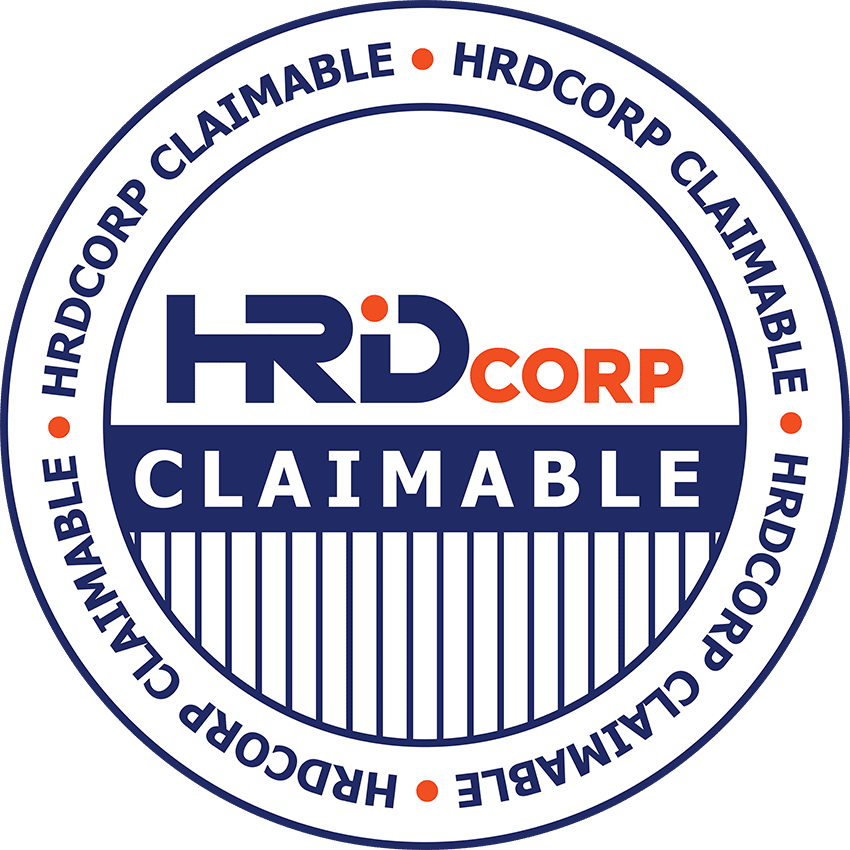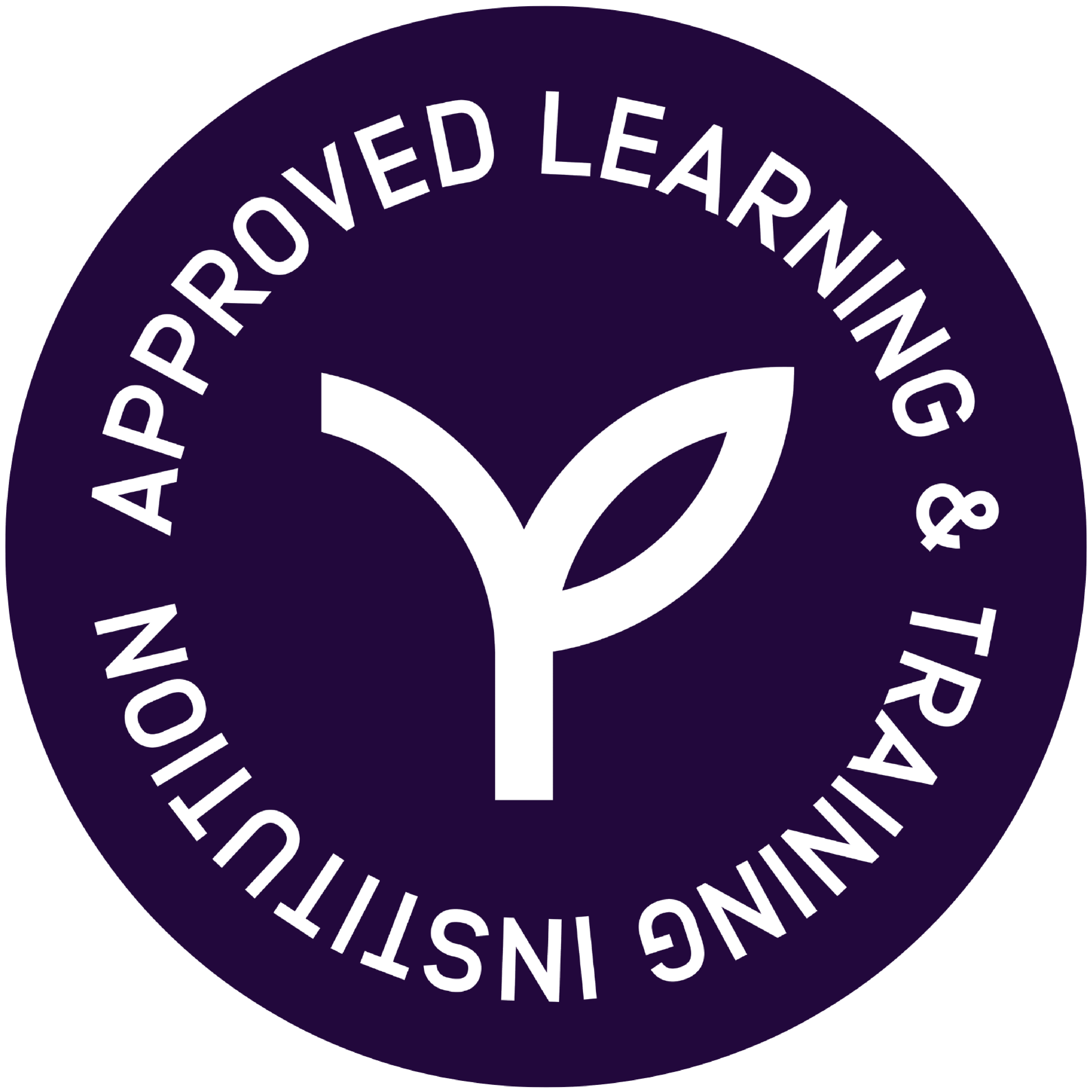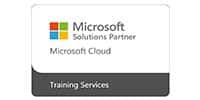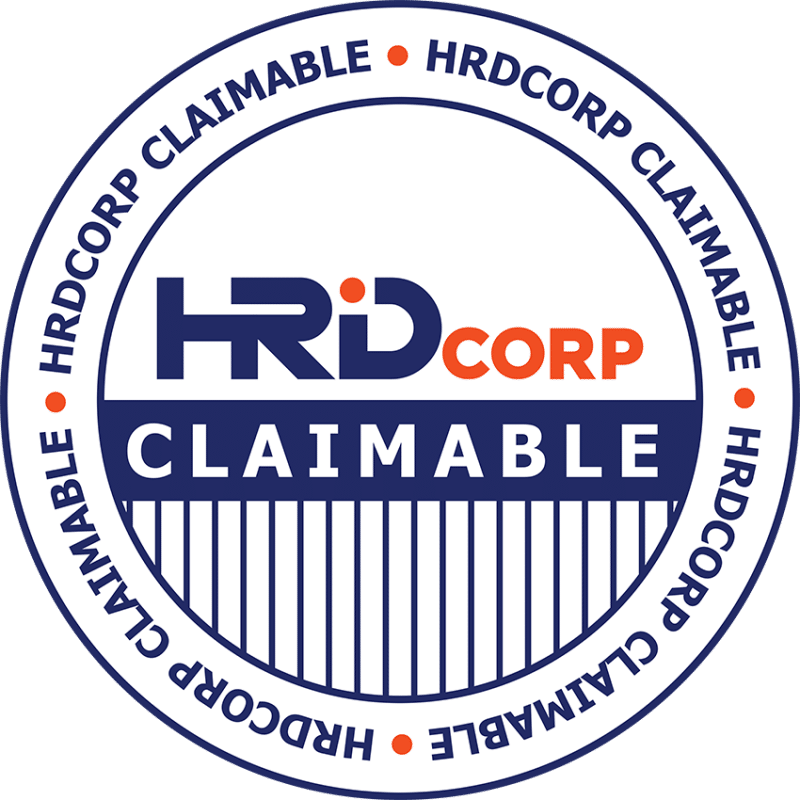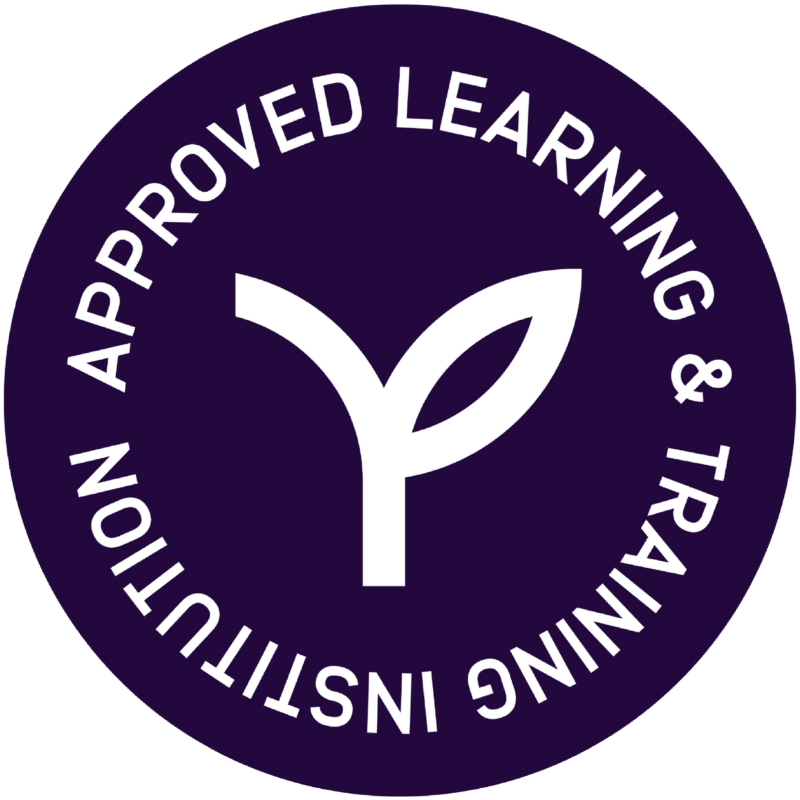Overview
Bringing the agility and innovation of cloud computing to your on-premises environment.
Learn to implement data center integration, manage identity and access and manage cloud infrastructure in this 4-days Microsoft Certified: Azure Stack Hub Operator Associate certification course.
This AZ-600T00: Configuring and Operating a Hybrid Cloud with Microsoft Azure Stack Hub course teaches Azure administrators and Azure Stack Hub operators how to plan, deploy, package, update, and maintain the Azure Stack Hub infrastructure. Lessons include deploying Azure Stack Hub, managing the Azure Stack Hub Marketplace, offering App Services and Event Hub resource providers, managing Azure Stack Hub registration, and maintaining system health.
Skills Covered
After completing this module, students will be able to:
- Prepare for Azure Stack Hub deployment
- Manage infrastructure certificates for Azure Stack Hub
- Manage Azure Stack Hub registration
- Configure an Azure Stack Hub home directory
- Provision a service principal for Azure Stack Hub
- Recommend a business continuity disaster recovery (BCDR) strategy
- Manage Azure Stack Hub by using privileged endpoints
- Manage Azure Stack Hub Marketplace
- Offer App Services and Event Hub resource providers
- Manage usage and billing
Who Should Attend
Students for AZ-600: Configuring and Operating a Hybrid Cloud with Microsoft Azure Stack Hub are interested in becoming Azure Stack Hub operators who provide cloud services to end users or customers from within their own datacenter using Azure Stack Hub. Azure Stack Hub operators responsibilities include planning, deploying, packaging, updating, and maintaining the Azure Stack Hub infrastructure. They also offer hybrid cloud resources and requested services and manage infrastructure as a service (IaaS) and platform as a service (PaaS).
This Azure certification course prepares students for the Microsoft Certified: Azure Stack Hub Operator Associate certification.
The AZ-600 exam measures your ability to accomplish the following technical tasks: provide services; implement data center integration; manage identity and access; and manage infrastructure.
Course Curriculum
Prerequisites
Successful Azure Stack Hub students have prior experience with operating systems, virtualization, cloud infrastructure, storage structures, and networking:
- Understanding of on-premises virtualization technologies, including VMs and virtual networking
- Understanding
of network configuration, including TCP/IP, Domain Name System (DNS), virtual private networks (VPNs), firewalls, and encryption technologies
- Understanding of Active Directory concepts, including domains, forests, and domain controllers
If you are new to Azure and cloud computing, consider one of the following resources:
- Free online: Azure Fundamentals (https://docs.microsoft.com/en-us/learn/paths/azure-fundamentals/)
- Instructor-led course: AZ-900: Azure Fundamentals (https://docs.microsoft.com/en-us/learn/certifications/courses/az-900t01)
- Prerequisites for Azure administrators (https://docs.microsoft.com/en-us/learn/paths/az-104-administrator-prerequisites/
Download Course Syllabus
Course Modules
Azure Stack Hub runs apps in an on-premises environment and delivers Azure services in your datacenter. This module aligns with the exam AZ-600: Configuring and Operating a Hybrid Cloud with Microsoft Azure Stack Hub.
Learning objectives
-Describe edge and disconnected solutions. -Describe Azure Stack Hub integrated systems architecture. -Explain Azure Stack Hub deployment options. -Define differences between Azure Stack Hub, Azure Stack HCI, and global Azure.
Prerequisites
- Conceptual knowledge of Azure compute solutions.
- Working experience with virtual machines, containers, and app service.
Azure Stack Hub Marketplace is used to create resources, deploy apps, and choose items. This learning path helps you prepare for Exam AZ-600: Configuring and Operating a Hybrid Cloud with Microsoft Azure Stack Hub.
Learning objectives
- Provide an overview of Azure Stack Hub Marketplace.
- Download Marketplace items to Azure Stack Hub.
- Populate Azure Stack Hub Marketplace in a disconnected environment.
- Import and publish to Azure Stack Hub Marketplace using PowerShell.
- Add and remove a custom VM image to Azure Stack Hub.
- Create a custom Azure Stack Hub Marketplace item.
- Publish a custom Azure Stack Hub Marketplace item
Prerequisites
- Conceptual knowledge of Azure compute solutions.
- Working experience with virtual machines, containers, and app service.
Azure App Service is a platform-as-a-service (PaaS) offering available on Azure Stack Hub. This learning path help you prepare for Exam AZ-600: Configuring and Operating a Hybrid Cloud with Microsoft Azure Stack Hub.
Learning objectives
- Provide an overview of Azure App Service on Azure Stack Hub.
- Plan an App Services resource provider deployment for Azure Stack Hub.
- Deploy an App Services resource provider for Azure Stack Hub.
- Update an App Services resource provider for Azure Stack Hub.
- Scale roles based on capacity requirements for Azure Stack Hub.
- Rotate App Services secrets and certificates for Azure Stack Hub.
- Back up App Services for Azure Stack Hub.
Prerequisites
- Working experience with deploying cloud applications.
- Conceptual knowledge of messaging, events, code deployments, configurations, API management, and app caching.
Streaming and event-based solutions are supported, for both on-premises and Azure cloud processing. This learning path help you prepare for Exam AZ-600: Configuring and Operating a Hybrid Cloud with Microsoft Azure Stack Hub.
Learning objectives
- Plan an Event Hubs resource provider deployment for Azure Stack Hub.
- Deploy an Event Hubs resource provider for Azure Stack Hub.
- Update an Event Hubs resource provider for Azure Stack Hub.
- Rotate Event Hubs secrets and certificates for Azure Stack Hub.
Prerequisites
- Working experience with deploying cloud applications.
- Conceptual knowledge of messaging, events, code deployments, configurations, API management, and app caching.
Azure Commerce bills you for Azure Stack Hub usage as it bills for Azure usage. This learning path helps you prepare for Exam AZ-600: Configuring and Operating a Hybrid Cloud with Microsoft Azure Stack Hub.
Learning objectives
- Understand usage and billing for Azure Stack Hub.
- Set up usage data reporting for Azure Stack Hub.
- View and retrieve usage data by using the Usage API for Azure Stack Hub.
- Usage and billing in multi-tenant and Cloud Solution Provider (CSP) scenarios for Azure Stack Hub.
- Add a tenant for usage and billing for Azure Stack Hub.
- Usage reporting infrastructure for Cloud Solution Providers for Azure Stack Hub.
Prerequisites
- Conceptual knowledge of governance policies, resource organization, and subscription management.
- Working experience with organizing resources, applying governance policies, and enforcing compliance requirements.
This module provides the information for Azure Stack Hub deployment including networking, security, and identity. This learning path helps you prepare for Exam AZ-600: Configuring and Operating a Hybrid Cloud with Microsoft Azure Stack Hub.
Learning objectives
- Recommend a name resolution strategy for Azure Stack Hub.
- Recommend a public and internal IP strategy for Azure Stack Hub.
- Recommend a data center firewall integration strategy for Azure Stack Hub.
- Recommend an identity provider for Azure Stack Hub.
- Validate identity provider integration for Azure Stack Hub.
- Configure the Time Server (NTP) for Azure Stack Hub.
Prerequisites
- Working experience with enterprise networking.
- Conceptual knowledge of firewall integration and hybrid connectivity.
Learn to validate the generated public key infrastructure (PKI) certificates are for pre-deployment of Azure Stack Hub. This module prepares you for Exam AZ-600: Configuring and Operating a Hybrid Cloud with Microsoft Azure Stack Hub.
Learning objectives
- Recommend certificate strategy for Azure Stack Hub.
- Validate certificates for Azure Stack Hub.
- Run secret rotation PowerShell cmdlet for external certificates for Azure Stack Hub.
Prerequisites
- Working experience creating, assigning, and securing corporate identities.
- Conceptual knowledge of identity assignment solutions, role-based access control, and identity protection methods.
Certificates with appropriate DNS names for each Azure Stack Hub public infrastructure endpoint are necessary. This module helps you to prepare for Exam AZ-600: Configuring and Operating a Hybrid Cloud with Microsoft Azure Stack Hub.
Learning objectives
- Recommend certificate strategy for Azure Stack Hub.
- Validate certificates for Azure Stack Hub.
- Run secret rotation PowerShell cmdlet for external certificates for Azure Stack Hub.
Prerequisites
- Working experience creating, assigning, and securing corporate identities.
- Conceptual knowledge of identity assignment solutions, role-based access control, and identity protection methods.
Learn how to configure Azure Stack Hub to allow sign-ins from Azure AD directory tenants. This module helps you to prepare for Exam AZ-600: Configuring and Operating a Hybrid Cloud with Microsoft Azure Stack Hub.
Learning objectives
- Configure multi-tenancy for Azure Stack Hub.
- Configure Azure Stack Hub guest directory.
- Direct users to sign in for Azure Stack Hub.
- Disable multi-tenancy for Azure Stack Hub.
- Update guest tenant directory for Azure Stack Hub.
Prerequisites
- Working experience creating, assigning, and securing corporate identities.
- Conceptual knowledge of identity assignment solutions, role-based access control, and identity protection methods
You configure Azure Stack Hub to support users from multiple Azure Active Directory (Azure AD) tenants. This module helps you prepare for Exam AZ-600: Configuring and Operating a Hybrid Cloud with Microsoft Azure Stack Hub.
Learning objectives
- Describe Hybrid Identity for Azure Stack Hub.
- Identify an appropriate method for access (service principal, users, groups) for Azure Stack Hub.
- Explain authentication and authorization for Azure Stack Hub.
- Provision a service principal for Azure Stack Hub
- Create a service principal that uses a certificate credential for Azure Stack Hub.
- Create a service principal that uses client secret credentials for Azure Stack Hub.
- Recommend a permission model for Azure Stack Hub.
- Set access permissions using role-based access control for Azure Stack Hub.
- Add a new Azure Stack Hub user account in AAD for Azure Stack Hub.
- Create an Azure custom role using Azure PowerShell for Azure Stack Hub.
Prerequisites
- Working experience creating, assigning, and securing corporate identities.
- Conceptual knowledge of identity assignment solutions, role-based access control, and identity protection methods.
Use syslog to integrate Azure Stack Hub infrastructure with security solutions already deployed in your datacenter. This module prepares you for Exam AZ-600: Configuring and Operating a Hybrid Cloud with Microsoft Azure Stack Hub.
Learning objectives
- Monitor health and alerts in Azure Stack Hub.
- Integrate external monitoring with Azure Stack Hub.
- Monitor system health by using Syslog Server.
- Manage field replacement or repair for Azure Stack Hub.
- Configure automatic diagnostic log collection for Azure Stack Hub.
- Find your Cloud ID for Azure Stack Hub.
- Collect diagnostic logs on demand by using PowerShell for Azure Stack Hub.
- Send Azure Stack Hub diagnostic logs by using the privileged endpoint.
Prerequisites
Working experience with monitoring and logging cloud environments. Conceptual knowledge of monitoring and logging.
Azure Monitor on Azure Stack Hub provides base-level infrastructure metrics and logs for most services. This module prepares you for Exam AZ-600: Configuring and Operating a Hybrid Cloud with Microsoft Azure Stack Hub.
Learning objectives
- Describe the Azure Monitor service in Azure Stack Hub.
- Explain how to use Azure Monitor on Azure Stack Hub.
- Consume monitoring data from Azure Stack Hub.
Prerequisites
- Working experience with monitoring and logging cloud environments.
- Conceptual knowledge of monitoring and logging.
In this module, you will learn how to manage compute and storage capacity for Azure Stack Hub. This module prepares you for Exam AZ-600: Configuring and Operating a Hybrid Cloud with Microsoft Azure Stack Hub.
Learning objectives
- Manage compute capacity for Azure Stack Hub.
- Manage partitioned GPUs in Azure Stack Hub.
- Add nodes in Azure Stack Hub.
- Manage storage capacity for Azure Stack Hub.
- Add IP pools in Azure Stack Hub.
Prerequisites
- Conceptual knowledge of Azure compute solutions.
- Working experience with virtual machines, containers, and app service.
- Working experience with database solutions.
Learn how Azure Stack Hub updates, when to expect releases, and where to find the current release. This module prepares you for Exam AZ-600: Configuring and Operating a Hybrid Cloud with Microsoft Azure Stack Hub.
Learning objectives
- Update Azure Stack Hub.
- Download and import update packages manually for Azure Stack Hub.
- Prepare for Azure Stack Hub updates.
- Update Azure Active Directory (AD) Home Director for Azure Stack Hub.
- Apply Azure Stack Hub original equipment manufacturer (OEM) updates.
- Use the Azure Stack Hub update activity checklist.
- Monitor updates with PowerShell in Azure Stack Hub.
Prerequisites
- Conceptual knowledge of Azure compute solutions.
- Working experience with virtual machines, containers, and app service.
Learn to access the privileged endpoint (PEP) and invoke the restricted set of cmdlets for Azure Stack. This module prepares you for Exam AZ-600: Configuring and Operating a Hybrid Cloud with Microsoft Azure Stack Hub.
Learning objectives
- Connect to a privileged endpoint in Azure Stack Hub.
- Configure the cloud admin user role in Azure Stack Hub.
- Unlock a support session in Azure Stack Hub.
- Close the session on the privileged endpoint in Azure Stack Hub.
- Stop and start Azure Stack Hub.
- Perform system diagnostics by using Test-AzureStack in Azure Stack Hub.
Prerequisites
- Working experience creating, assigning, and securing corporate identities.
- Conceptual knowledge of identity assignment solutions, role-based access control, and identity protection methods.
Learn the best practices for deploying and managing Azure Stack Hub to help mitigate data loss. This module prepares you for Exam AZ-600: Configuring and Operating a Hybrid Cloud with Microsoft Azure Stack Hub.
Learning objectives
- Recommend a business continuity disaster recovery (BCDR) strategy.
- Recommend a strategy for infrastructure backups.
- Enable backup for Azure Stack Hub.
- Enable backup for Azure Stack Hub with PowerShell.
- Back up Azure Stack Hub.
- Validate backup using the Azure Stack Development Kit.
- Back up storage accounts on Azure Stack Hub.
Prerequisites
- Conceptual knowledge of Business Continuity and Disaster Recovery solutions.
- Working experience with object replication, backup solution tools, and recovery options.
You configure and deliver offers, plans, and subscriptions as an Azure Stack Hub operator. This learning path helps you prepare for Exam AZ-600: Configuring and Operating a Hybrid Cloud with Microsoft Azure Stack Hub.
Learning objectives
- Describe Azure Stack Hub quotas, plans, offers, and subscriptions.
- Create a Plan for Azure Stack Hub.
- Create an add-on plan for Azure Stack Hub.
- Create and manage offers for Azure Stack Hub.
- Delegate offers for Azure Stack Hub.
- Create user subscriptions for Azure Stack Hub.
- Manage subscriptions, plans, and offers using PowerShell for Azure Stack Hub.
- Change user subscription owner for Azure Stack Hub.
Prerequisites
- Working experience with deploying cloud applications.
- Conceptual knowledge of messaging, events, code deployments, configurations, API management, and app caching.
See how resource providers in Azure Stack Hub can be configure with PowerShell to enhance Azure capabilities. This module aligns with the exam AZ-600: Configuring and Operating a Hybrid Cloud with Microsoft Azure Stack Hub.
Learning objectives
- Understand the resource providers and Azure PowerShell modules used for Azure Stack Hub.
- Work with PowerShell in Azure Stack Hub.
Prerequisites
- Conceptual knowledge of Azure compute solutions.
- Working experience with Azure PowerShell.
For Azure Stack Hub, you apply the same governance to assets in your datacenter as in Azure. This module aligns with the exam AZ-600: Configuring and Operating a Hybrid Cloud with Microsoft Azure Stack Hub.
Learning objectives
- Describe what is necessary for running Azure in your datacenter.
- Outline capacity planning considerations.
- Choose an identity provider for Azure Stack Hub.
- Describe connection models for Azure Stack Hub.
- Distinguish licensing models for Azure Stack Hub.
- Identify naming decisions for Azure Stack Hub.
- Describe certificate requirements for Azure Stack Hub.
- Describe how to connect Azure Stack Hub to Azure.
- Outline hybrid connectivity options for Azure Stack Hub.
Prerequisites
- Conceptual knowledge of Azure compute solutions.
- Working experience with virtual machines, containers, and app service.
- Working experience with database solutions.
Request More Information
Training Options
Exam & Certification
Microsoft Certified: Azure Stack Hub Operator Associate.
The Microsoft Certified: Azure Stack Hub Operator Associate certification validates your expertise in this area and offers you the opportunity to prove your skills. To earn this certification, pass Exam AZ-600: Configuring and Operating a Hybrid Cloud with Microsoft Azure Stack Hub.
This certification could be a great fit if you have significant experience managing and operating Azure Stack Hub environments. You should also have a strong understanding of Azure, in addition to some knowledge of virtualization, networking, and identity management. And you need to understand how Azure Stack Hub enables DevOps processes and the hybrid development model.
Training & Certification Guide
Candidates for the Azure Stack Hub Operator Associate certification are Azure administrators or Azure Stack Hub operators who provide cloud services to end users or customers from within their own datacenter using Azure Stack Hub.
Their responsibilities are to plan, deploy, package, update, and maintain the Azure Stack Hub infrastructure. They also offer hybrid cloud resources and requested services and manage infrastructure as a service (IaaS) and platform as a service (PaaS).
They serve as part of a larger team dedicated to cloud-based management and security or hybrid environments as part of an end-to-end infrastructure.
Candidates for this certification should have significant experience managing and operating Azure Stack Hub environments. They should have a strong understanding of Azure, in addition to some knowledge of virtualization, networking, and identity management. They need to understand how Azure Stack Hub enables DevOps processes and the hybrid development model.
This exam measures your ability to accomplish the following technical tasks: provide services; implement data center integration; manage identity and access; and manage infrastructure.
Skills measured:
- Provide services (30-35%)
- Implement data center integration (15-20%)
- Manage identity and access (10-15%)
- Manage infrastructure (30-35%)
When you earn a certification or learn a new skill, it’s an accomplishment worth celebrating with your network. It often takes less than a minute to update your LinkedIn profile and share your achievements, highlight your skills, and help boost your career potential. Here’s how:
- If you’ve earned a certification already, follow the instructions in the congratulations email you received. Or find your badge on your Certification Dashboard, and follow the instructions there to share it. (You’ll be transferred to the Acclaim website.)
- To add specific skills, visit your LinkedIn profile and update the Skills and endorsements section. Tip: We recommend that you choose skills listed in the skills outline guide for your certification.
If you’ve already earned your Azure Administrator Associate certification, but it’s expiring in the near future, we’ve got good news. You’ll soon be able to renew your current certifications by passing a free renewal assessment on Microsoft Learn—anytime within six months before your certification expires. For more details, please read our blog post, Stay current with in-demand skills through free certification renewals.
Master Your Cloud Career: Essential Azure Certifications for 2024
Targeting the most valuable Azure certifications for 2024? In the evolving landscape of cloud computing, Azure certifications stand out by offering professionals the leverage to thrive. This article presents a focused rundown of crucial Azure certifications, shining a light on their career-boosting effects and elucidating steps to get certified. No fluff – just actionable insights to empower your journey in the cloud.
AI Mastery Program: Learn AI with Microsoft in 2024
Artificial Intelligence (AI) has been one of the hottest topics in the tech industry for the past decade. With its rapid advancements and potential to impact our daily lives, learning AI has become a highly sought-after skill.
We are thrilled to announce the launch of our Microsoft AI Mastery Program in 2024, made possible through our partnership with Microsoft, a renowned leader in AI technology. This program is tailored for individuals and tech professionals passionate about acquiring and mastering the fundamental and advanced principles of AI.
Azure Strategy & Implementation Guide
Get a step-by-step introduction to using Azure for your cloud infrastructure with this Pack e-book. Read the latest edition of the Azure Strategy and Implementation Guide for detailed guidance on how to create a successful cloud adoption strategy with new innovations, capabilities, and security features from Microsoft Azure.
Microsoft Azure SQL Jumpstart Guide
Find out how to get started launching your first Azure SQL database or find ways to make your existing SQL database work harder. Download the Azure SQL Jumpstart Guide for detailed instructions and in-depth insights to help you make your Azure SQL deployment, migration, or enhancement run smoothly.
Low-code Application Development – Microsoft PowerApps and Azure
Build production-ready apps faster with a low-code environment. Quickly stand up your applications with Power Apps and get more time to apply your technical expertise to extending and optimizing those apps in Azure.
Azure Cloud Native Architecture Mapbook
Grow your cloud architecture skills with guidance from Azure Experts. Go beyond developing cloud-native applications to planning and implementing cloud application infrastructure. In this free e-book from Packt Publishing, you’ll find best practices for infrastructure design and patterns for building a complete solution.
Windows Virtual Desktop Security
Find out how to secure your Windows Virtual Desktop environment when migrating your virtual desktop infrastructure (VDI) to Azure. Read this security handbook to get technical hands-on guidance on how to help protect your apps and data in your Windows Virtual Desktop deployment.
Discover how to get more value from your on premises Windows Server and SQL Server investments and move some or all of your workloads to the cloud using your existing skills. See how to start using the cloud to support new ways of doing business and help ensure business continuity even if you need to keep some of your IT assets on-premises due to regulatory or data governance requirements.
Discover how to build highly scalable applications using containers and how to deploy and manage those containers at scale with Kubernetes on Azure. Read the completely reviewed and updated Packet e-book, Hands-On Kubernetes on Azure, Third Edition and discover what’s new, including security enhancements, continuous integration and continuous delivery (CI/CD) automation, and the latest supported technologies. Gain insight into building reliable applications in the new foreword by Kubernetes co-founder Brendan Burns.
Azure Synapse Analytics Proof of Concept Playbook
Learn how to perform a proof of concept efficiently and economically with Azure Synapse Analytics. Read the Azure Synapse Analytics Proof of Concept Playbook to understand the key concepts involved in deploying data warehousing, data lake, and big data workloads with Azure Synapse and get the evidence you need to make the case for implementation at your organization.
Spend less time managing server infrastructure and more time building great apps. Get your solutions to market faster using Azure Functions, a fully managed compute platform for processing data, integrating systems, and building simple APIs and microservices. The Azure Serverless Computing Cookbook will, through the development of basic back-end wep API that performs simple operations, helps you understand how to persist data in Azure Storage services.
Frequently Asked Questions
Earning a Microsoft Azure certification is globally recognized and industry-endorsed evidence of mastering real world skills. It shows you demonstrate proficiency in keeping pace with technology. It’s a career move that yields many positive results.
Furthermore, Microsoft Certifications is also a great way to break into the tech industry. A Microsoft Certification immediately confers a level of authority and expertise, especially helpful for someone new to the industry.
The number of questions on a certification exam is subject to change as Microsoft make updates to ensure it aligns with current changes in the technology and job role. Most Microsoft Certification exams typically contain between 40-60 questions; and around 60-140 minutes.
Starting June 30 2021, all newly earned role-based and specialty certifications will be valid for one year from the date the certification was earned.
To stay up to date, IT pros are constantly learning and adding skills. The IDC study concluded that Microsoft Learning Partners such as Trainocate Malaysia are well positioned to help organizations achieve their business and learning goals. The IT leaders who were surveyed found the most value from a Learning Partner that provides:
- An end-to-end solution which starts with identifying skill gaps, simplifies the learning experience, and finishes by evaluating how well the Learning Partner met the organization goals.
- Scale, flexibility, and speed to train teams of any size, in any location, amid changing circumstances.
- Value-added services, such as hands-on labs, classroom training, and custom content that help the skills development program succeed.
- High-quality content and delivery, meaning accurate, relevant courseware, top-notch instructors, and a path to certification, if needed.
We’d recommend the following courses to compliment skills acquired from AZ-600Too:
AZ-104T00: Microsoft Azure Administrator
This course teaches IT Professionals how to manage their Azure subscriptions, secure identities, administer the infrastructure, configure virtual networking, connect Azure and on-premises sites, manage network traffic, implement storage solutions, create and scale virtual machines, implement web apps and containers, back up and share data, and monitor your solution.
AZ-400T00: Designing and Implementing Microsoft DevOps solutions
This course provides the knowledge and skills to design and implement DevOps processes and practices. Students will learn how to plan for DevOps, use source control, scale Git for an enterprise, consolidate artifacts, design a dependency management strategy, manage secrets, implement continuous integration, implement a container build strategy, design a release strategy, set up a release management workflow, implement a deployment pattern, and optimize feedback mechanisms.
AZ-500T00: Microsoft Azure Security Technologies
The AZ-500T00 training enables you to secure end-to-end infrastructure on both cloud and hybrid environments and validate technical expertise with the Azure Security Engineer Associate certification.
AZ-700T00: Designing and Implementing Microsoft Azure Networking Solutions
If you plan, implement, and maintain Azure networking solutions, including hybrid networking, connectivity, routing, security, and private access to Azure services, be sure to check this Microsoft Azure certification out.
AZ-800T00: Administering Windows Server Hybrid Core Infrastructure
Build your future with Windows Server and Azure.
Are you ready to shine a spotlight on your skills in working in hybrid environments? Do you have the experience you need to integrate Windows Server environments with Azure services, manage Windows Server in on-premises networks, and manage Windows Server IaaS workloads in Azure? If you do, start learning about the Windows Server Hybrid Administrator Associate certification today and signal that you have what it takes to manage and deploy apps in the new hybrid future.
AZ-801T00: Configuring Windows Server Hybrid Advanced Services
The all-new Microsoft Certified: Windows Server Hybrid Administrator Associate credential.
This new certification validates the skills of administrators working in hybrid environments. Hybrid is the reality for many organizations that are building new cloud-native applications, while still supporting current on-premises applications, and Windows Server administrators help organizations successfully make the most of these environments.
